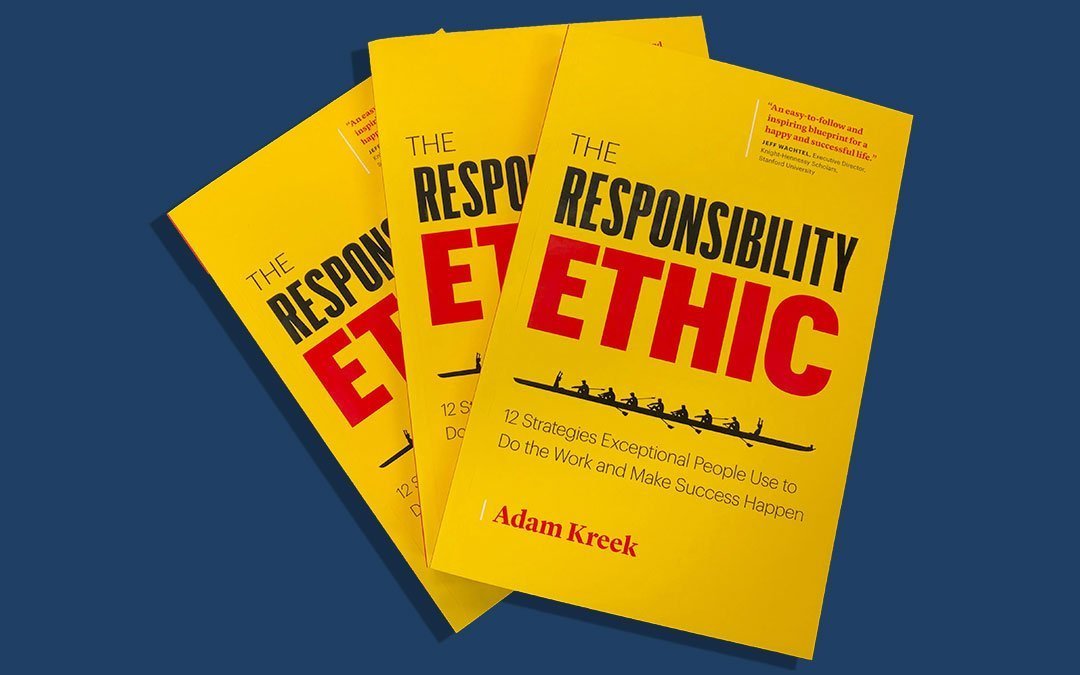In my new book, The Responsibility Ethic, I challenge business leaders to chase their ambitions by taking responsibility for their success. At the same time, as a Champion for the Canadian Men’s Health Foundation, it was exciting and rewarding to explore a set of tools that can be used to achieve a different kind of success — happiness — among a much wider audience.
The chapter entitled “Take Responsibility for Your Stress” provides several prime examples of how physical and mental self-care can lead to happier, healthier men. When you work hard and recover smartly — that is, when you take responsibility for your stress — you can make it your secret weapon.
All men feel stress — at work and at home — and many of us think of it as negative and as something to be avoided. Indeed, according to a recent CMHF survey, 60 percent of Canadian men are working more than 40 hours per week, 60 percent work when they are sick or unwell, 46 percent often work extended hours, and 30 percent work while on vacation. Put all this together, and it’s no wonder 80 percent of men said they were somewhat or very stressed at work, with 60 percent saying work affects their ability to have a proper night’s sleep. The consequences of all this can be serious, including a higher risk of heart disease, type 2 diabetes, obesity, depression and other mental illnesses, low testosterone and obesity.
Fact is, you are more likely to die early if you have the wrong relationship with stress. A study conducted by Abiola Keller and a team of researchers, and reported in a 2012 issue of Health Psychology, tracked 30,000 adults for eight years. The researchers asked, “How much stress have you experienced in the past year?” and “Do you believe that stress is harmful for your health?”
Expected: Those who had experienced a lot of stress in the past year had a 43 percent increased risk of dying.
Unexpected: This finding was only true for the people who also believed that stress is harmful for your health. People who experienced a lot of stress but did not think that the stress they experienced was harmful had the lowest risk of dying — even lower than those who had very little stress.
Insights on healthy stress
In 1908, two Harvard researchers, Robert Yerkes and John Dodson, were the first to calibrate the relationship between stress and performance. Sometimes it’s nice to have a manager’s prodding, a coach’s devilled gaze or competitive energy from colleagues. Other times, external stresses become too much and have a negative impact on our performance.
Dr. Herbert Benson, the founder of the Mind-Body Medical Institute in Chestnut Hill, Mass., offers numerous insights that will bolster stress tolerance. Here’s a summary of his common-sense four-step breakout principle:
- Work: Seek results until you are in a frenzy of anxiety, fearfulness, anger, boredom or self-sabotage. Concentrate. Focus. Push your mind until you can’t move forward.
- Walk: Go outside. Leave the office. Walk your dog. Sit in the sauna. Visit an art gallery. Meditate. Jog. Chat with someone. Dance. The key is to stop analyzing your problem and surrender control. Get out of your head and into your body.
- Gain: Your break should be long enough to spur an epiphany. It should be distracting enough to forget your problems.
- Return: Powered by your new insight, you will resume working at a new level of high productivity.
Stress is powerful stuff. Channeled properly, stress can be a positive and powerful force for healthier living and a more fulfilling life. When our body creates energy, releases hormones, and starts to pulse, we can either embrace the energy or fight it. If you’re wondering how to create healthy stress, here’s what I’ve found – read more on Don’t Change Much.


Let’s Talk!
Did you enjoy this article? Let us know in the comments.
0 Comments